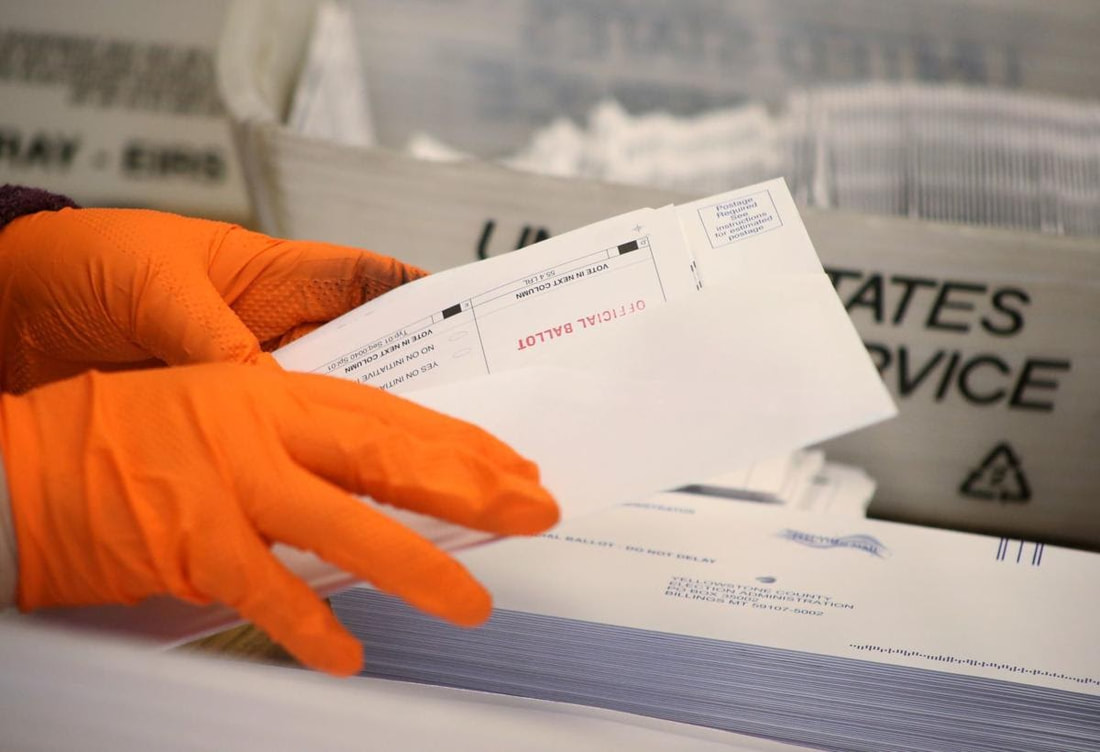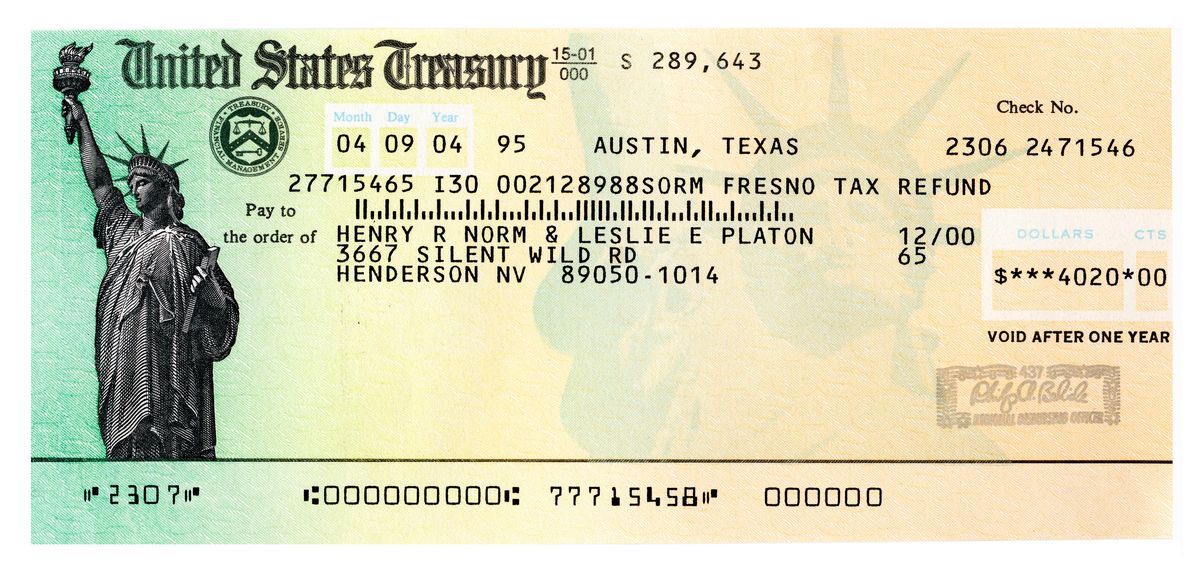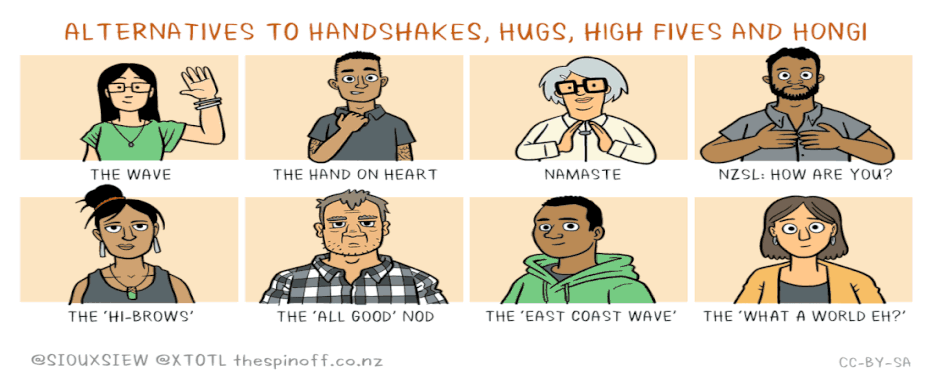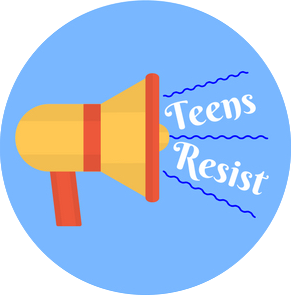LISTSOur biweekly lists lay out notable issues in the news and tell you what you can do about them.
|
SUBSCRIBE TO EMAIL UPDATES:
|
|
4/24/2020 0 Comments Stay Sane(Itized): April 2020Hey Teen Resisters! Happy a few days late Earth Day, and we hope more than anything that you and your families are all staying healthy and safe. This is an absolutely unprecedented time, and right now we say: stay sane — watch a trashy show, take care of yourself (by exercising, sleeping, doing something, or doing nothing), and don't lose hope. Unity is vital right now, even when we're separate! So is forgiving yourself! We've included a statement on Biden below, linked our last list/some general action items, and then covered some COVID-19 news. It's often difficult to even open the news right now, so this is something good to read if you just want a couple of bite-sized pieces of important info. Peace & Power, TR
Not only are we voting for a president, we’re voting for a cabinet, Supreme Court nominees, a huge number of federal judges, and a whole new administration. This election is also wildly important in other races besides the presidential one. All of this is to say that we will be launching our previously planned 2020 youth-mobilizing programs in favor of Joe Biden and his campaign as well as for tons of other progressives around the country who we want to see be elected (just like we did with the midterms!). We also plan (and hope you do too) to hold Biden to high standards and push him on issues and policies we care about — whatever they may be — both during the campaign and hopefully once he is in the White House. **Before we dive in: What can you do re: COVID-19, in general? We outlined a ton of feasible and impactful actions in our last list — including how to find places or sites to volunteer, places to donate to, how to stay updated, and how to stay busy. Check it out here: Quaranteens Resist. And here’s the link for places to get aid from, if you need a quick reference.** what went down
The US’ annual contribution to the UN, totalling around $10 billion, makes up about 20% of the organization’s budget; this is more than twice that of the second largest contributor, Japan, which provides some 9.7% of the organization’s funds. At the same time, contributions by the US are small in comparison to the size of its economy, making only a 0.26% dent in the overall federal budget. (Consider this in comparison to US annual military spending, which this year will exceed $934 billion.) And these contributions have a hugely positive impact on the world, funding vaccines and food for impoverished children through UNICEF, peacekeeping operations through the DPO, the protection of tens of millions of refugees through the UNHCR, and of course health services around the world through the WHO. While there may be issues with the scale of funds provided by the US to the UN and WHO, the cessation of financial support in the midst of the largest public health crisis in a century is counterproductive at best. Certainly, the WHO is biased towards the Chinese government and significant changes need to be made (take the incident on March 30, when one of its Director-Generals, Bruce Aylward, refused to acknowledge the presence of Taiwan in an interview with Hong Kong journalist Yvonne Tong), but the time for these changes is when this pandemic ends. Recognizing this, many countries, among them the UK, China, New Zealand, France, Russia, and Germany, have spoken out in support of the WHO and pledged to maintain their own funding.
President Trump included 400 million dollars in the recent stimulus package for states to use for election purposes. However, the bill didn’t specify any requirements for how the funding had to be used, and some legislators and advocates don’t think this is sufficient. Senator Kamala Harris (D-CA) recently introduced the VoteSafe Act, a bill that would require every state to allow mail-in voting, without having to provide an excuse. This means that in states where mail-in voters have to provide a reason for why they aren’t voting on Election Day, this would no longer be required and anyone could vote by mail. Harris’ bill would also mandate that all states have at least 20 days prior to the election on November 3, when people can choose to vote early in-person. According to The Hill, Senator Harris introduced the VoteSafe Act to “ensure that voting is safe and accessible” for everyone, especially in the face of the current pandemic. A few things that you can do:
What’s going on:
As of April 16th, 2020, millions of Americans did not receive the COVID-19 stimulus checks promised to them by the federal government. U.S Treasury Secretary Steven Mnuchin had instructed the Internal Revenue Service (IRS) to deliver the payments as timely as possible to address the devastating effects of the coronavirus on working opportunities. Instead, millions of Americans who had filed their taxes through services like TurboTax did not receive their check when guaranteed as the IRS reportedly did not “have their direct deposit information on file”. According to consumer law expert Vijay Raghavan, up to 21 million tax filers could be impacted by this mistake. To try to restore order, the IRS launched the “Get My Payment” service to aid people in tracking their stimulus payment. This seems to have had little to no effect, as many users are experiencing issues and confusion with the software. Similar problems are occurring with the IRS website itself, as the service locks people out who try to access their information many times throughout the day to avoid potential fraud. The Washington Post also reports that a number of people are receiving the incorrect payment amount for dependent children. The Post also reports that people who owe $0 in taxes are having issues checking their payment status. The IRS’s condition is only made worse by the fact that there have also been reports circulating about stimulus checks sent to the addresses of deceased people. The IRS says they are aware of the many issues made apparent by the stimulus payments and are currently working to resolve them. Go to the IRS website to get your payment or check the status of processing payments nationwide. And, finally....
0 Comments
4/1/2020 0 Comments Quaranteens Resist: ResourcesHello Teen Resisters, Thanks for sticking with us in this strange time-- we know it took us a little while. Our team is made up of teens and just like all of you, we've had a lot of adjusting to do with online school, etc. But now we're back. We figured that you're probably getting enough news all the time, and because things are so fast-paced, so we are leaning into the "list" structure and providing you with some resources. You'll see that this list is sectioned into a few different mini-lists: resources for information, donations, financial support, political resources, etc. We will continue with our regular list coverage throughout the pandemic on a biweekly schedule. We will also probably be doing some workshops on Instagram Live (@teensresist) since we can't do in-person workshops. Also- take the census, please! Tell your loved ones as well. We are sending you all our love and support in this weird, confusing, disturbing period of time. Stay inside, stay distanced, and stay safe. Peace, power, and health, TR RESOURCE MASTER LISTHOW TO STAY UPDATED (IN A MANAGEABLE WAY) If there’s an abundance of anything right now in relation to COVID-19, it’s advice and information from all corners of the Internet. It’s really easy to get overwhelmed and end up feeling helpless — like just allowing yourself to stay in the dark about what’s going on is easier than trying to balance everything that’s happening. We’ve compiled a list of a few targeted sources that provide reliable, comprehensive, and often bite-sized information; hopefully, they will help you stay updated (if that’s what you want to do!). News Updates
Health Guidance
Infographics
Elections
Where not to get information
PLACES TO DONATE TO We’ve listed, linked, and identified the focus of some aid programs below. Keep in mind that we’re also only scraping the surface — there are too many organizations doing phenomenal work to count. We also recognize that donating is not realistic for everyone! Do what you can and only that. National:
Local, more generally:
NYC in particular (just a few — there are so many!):
For more detailed info, go here (NYT) and here (Charity Navigator). PLACES TO GO FOR FINANCIAL ASSISTANCE This document, compiled by Sonia Chajet Wides & Anya Shvarts for community members in Brooklyn, NY, is an excellent database to check out if you or someone you know (from a veteran to an older relative to a small business owner to a restaurant worker) needs financial assistance. For 22 organizations/programs, it provides the name, who is eligible, a link to information, and any additional caveats. Adding one more to that list, Financial Assistance For Single Mothers helps financially struggling single mothers with finding grants and government assistance programs, free of cost. Legislative Explainer & ActionIn addition to the massive impacts coronavirus is having on public health across the country, the epidemic is also inflicting severe blows on the American economy. Across the country, jobs have been deemed non-essential and people have been encouraged to stay home in the interest of containing spread; 3.3 million workers filed for unemployment benefits last week, with economists deeming the economy’s current recession one of the most severe in American history. Low-income families and individuals are especially susceptible to both the virus and this economic nose-dive, and are especially in need of economic aid. On Friday, March 27th, in the interest of providing some of this economic relief, Congress passed (and Trump signed into law) the Coronavirus Aid, Relief, and Economic Security Act (CARES ACT), a 2 trillion dollar federal measure aimed at providing relief to American individuals, families, and businesses impacted by the coronavirus pandemic. The bill came after acute partisan in-fighting over whether the bill should be written in support of businesses or workers, with Democrats blocking a pro-business bill with little federal oversight from passing on Thursday. The CARES ACT is 880 pages long. Teens Resist is here with a brief breakdown of everything important about the bill, and everything you can do to make it better. The CARES ACT, explained:
How can I improve the CARES ACT?
Separately, Congress also recently passed the Families First Coronavirus Response Act: Employee Paid Leave Rights (FFCRA), which extends Title II of the Family and Medical Leave Act to provide that certain employers provide workers who are unable to work due to a quarantine order, a health care provider order, having coronavirus, or caring for a relative with coronavirus or a child whose school/place of care has been shut down. How can I improve the FFCRA?
More things to stay active: - This excellent email from Coalition Z - Advocate for rent suspension-- it's the humane thing to do - Advocate to not cut education budgets right now - Sign up for The Broad Room's email list-- they send out great comprehensive updates QUARANTINE TO-DO LIST With COVID-19 rampaging our country, and the circumstances only growing more and more dangerous, now is more important than ever that we take part in self-isolation. But we all know that spending extended periods of time inside can get dull pretty fast, so we’ve put together 10 ideas of things you can do to pass the time!
|
UPdatesThese lists include featured organizations, scripts, numbers, news updates and inspirational activists. Archives
January 2022
Categories |
About |
Content |
|








 RSS Feed
RSS Feed
